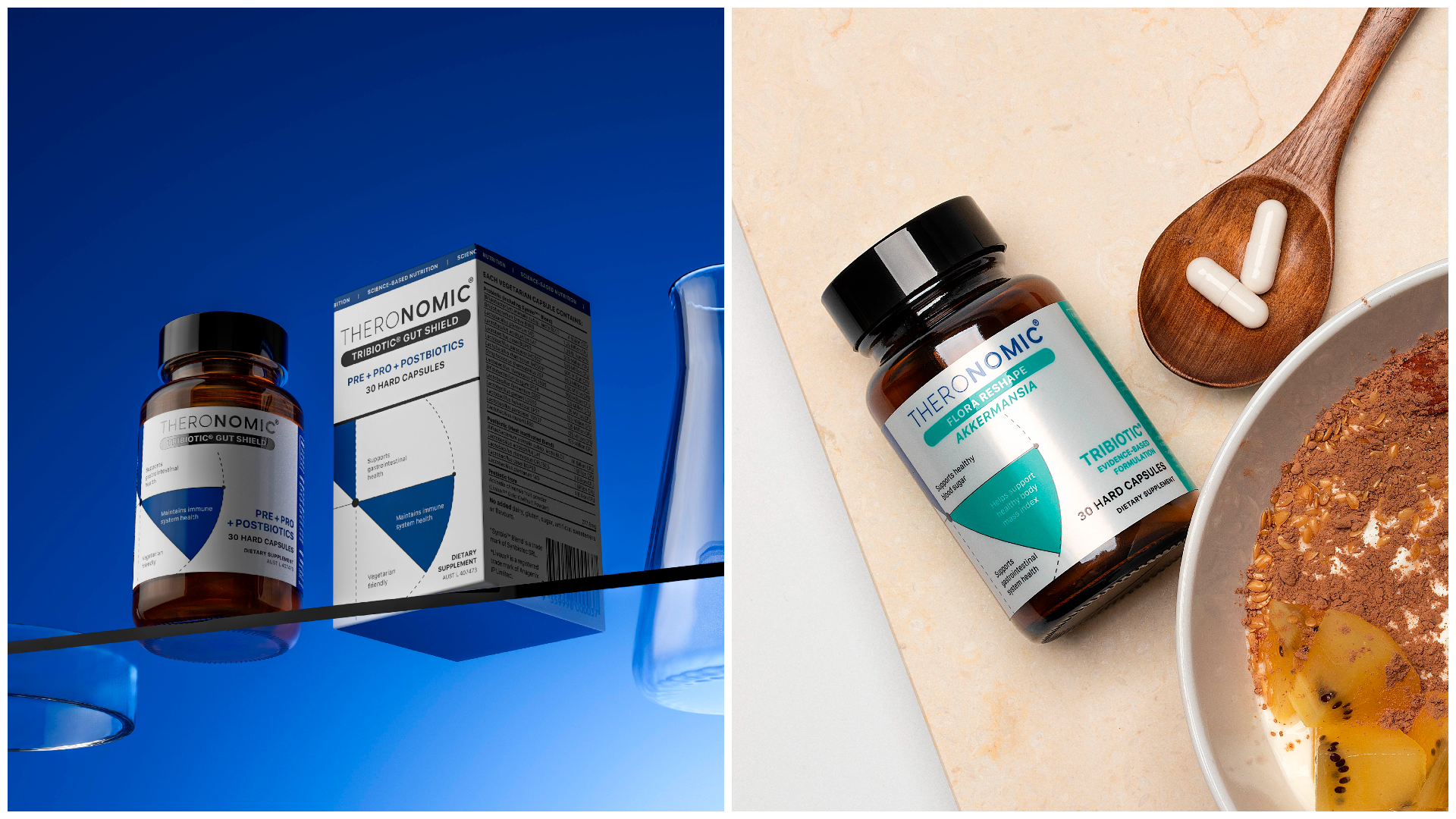#INTERVIEW: In Conversation with Dr. Ross Walker & Dr. Julie Z. Chen About Revolutionizing Gut Health

In recent years, gut health has emerged as the cornerstone of overall well-being, with increasing evidence linking it to everything from immune function and mental health to cardiovascular health and chronic disease prevention. After a successful Arab Health Medical Expo 2025, Dr. Ross Walker, a leading cardiologist and Chairman of the Gut Foundation in Australia, alongside Dr. Julie Z. Chen, a seasoned naturopathic doctor, spoke with L’Officiel Arabia about their mission of revolutionizing health through the transformative power of gut wellness. Together, they are reshaping how we approach wellness, from the food we eat to the products we trust. Here’s an exclusive look at their groundbreaking work and their vision for a healthier future in the UAE.
Delna Mistry Anand: Dr. Ross, Dr. Julie, thank you for joining us today. Let’s begin by talking about your presence at Arab Health 2025, and what exactly is Theronomic?
Dr. Ross Walker: Thank you for having us. Our company has several components, and our focus is on the Theronomic component, which concentrates on gut health—the root of over 90% of modern diseases. I’m a cardiologist with over 45 years of experience and the chairman of the Gut Foundation in Australia, and Julie is the designer. Together we’ve developed ‘Theronomic’ to address the widespread gut dysfunction caused by poor diets, stress, and chemicals.
Gut health awareness has increased considerably in recent years, and the gut is called the second brain. Please explain why the gut plays a vital role in our overall wellbeing.
Dr. Ross Walker: Though I am a cardiologist, I spend substantial time devoted to educating people about gut health. The gut is the first point of contact for everything we consume, and it plays a crucial role in overall health. With 40 trillion human cells and 100 trillion gut bacteria, if the gut isn’t healthy, the body isn’t either. Gut-related diseases, such as IBS, bloating, and reflux, are common, and even conditions like Alzheimer’s and heart disease are linked to gut health. In fact, 70% of our immune system is in the gut, and imbalanced gut bacteria can lead to fatty plaques in the arteries.
Our vision is to provide high-quality products that go beyond conventional probiotics. Standard probiotics often don’t have enough impact because they only address a small fraction of gut bacteria. We’ve developed products with higher concentrations and better quality ingredients to ensure efficacy, backed by scientific studies. With Julie’s expertise, we’ve created solutions to improve gut health, supporting everything from mental health to immunity.
About 30-40 years ago, the idea was introduced that everyone should consume low-fat foods, which, in hindsight, is completely misguided. Low-fat foods are often low in protein as well. One key protein, tryptophan—a vital amino acid—plays a crucial role in our well-being. When you consume tryptophan, it’s converted by healthy gut bacteria into serotonin, the "happy" chemical.
However, if you follow a low-fat diet, you’re depriving your body of the necessary protein to help your gut bacteria produce serotonin. Interestingly, 90% of serotonin is actually produced in the gut, making it essential for both mental and physical health.
And for all of us wondering, please elaborate on why a low-fat diet isn't ideal?
Dr. Ross Walker: When we talk about low-fat products—like low-fat milk and similar items—there’s no real evidence to support the claim that they’re better for your health. In fact, a large study called the PURE Study, which followed 220,000 people across 50 countries over nine years, found that consuming 100 grams of red meat per day and three servings of high-fat dairy reduced the risk of death from cardiovascular disease by 25%. This data, based on nearly a quarter of a million people, challenges the narrative that we’ve been fed for decades.
The real issue lies in the low-quality diets many people follow today, filled with ultra-processed foods. Anything that comes in a box, a container, or has a long shelf life—products that sit on store shelves for months—are not only devoid of nutrients, but also harmful to your body. These ultra-processed foods—what I call “white death,” especially sugar—are the root cause of many health issues we face.

Could you please explain why sugar is the main villain in our diet?
Dr. Julie Z: Sugar, white bread, pasta, potatoes, and rice are all problematic, especially when the rice is polished. Brown rice has fibre, prebiotics, and antioxidants, but when you remove the outer layers, white rice becomes nothing more than starch, which quickly turns into sugar. The same goes for yogurt—while it’s a good source of probiotics when fermented, the low-fat versions are often loaded with sugar, undermining their benefits.
The best alternative sweetener is stevia, which is a healthier option. But, ideally, it's best to minimize sweet things altogether. Our bodies weren’t designed for the excessive sugar we consume today.
In the past, there were no processed foods, no alcohol—water from a stream or river was the only drink. When you hunted an animal, you ate it right away—there were no prehistoric refrigerators. There was no sugar either. The only sugars we consumed came from natural sources like fruits. Natural fructose is good for you, but synthetic fructose or sucrose is a different story—it’s harmful to your body, and even your teeth.
As a naturopathic doctor for 15 years before moving into product formulation, I’ve seen many clients who think their gut health is fine because they have a bowel movement once a week. But that’s not normal or healthy. People’s expectations of what’s “normal” and “healthy” are often skewed. If you’re only having a bowel movement once a week, your gut isn’t functioning properly. Chronic inflammation and compromised gut membranes are common signs of deeper health issues.
There have been studies comparing the gut microbiomes of city dwellers and people who live in rural areas. Those with regular exposure to nature, plants, and soil have a much higher diversity of gut bacteria, which is vital for overall health. The diversity of organisms in your gut is strongly linked to your risk for chronic disease. People with low gut diversity are more likely to suffer from chronic conditions.

What according to you, are some of the most significant challenges to gut health and how do they contribute to chronic conditions like diabetes and obesity?
Dr. Ross Walker: One of the biggest challenges today is the prevalence of insulin resistance, or "diabesity." About 30-40% of people are genetically predisposed to it, particularly those with darker or olive skin. This predisposition, combined with the modern Western diet, creates a perfect storm leading to obesity, diabetes, and heart disease.
But there’s hope! One of the most exciting discoveries in gut health is a bacterium called Akkermansia muciniphila. This bacterium is linked to enhanced metabolic health and weight management. Those with lower levels of Akkermansia are more likely to experience obesity and insulin resistance. We’ve specifically formulated our products to support the growth of Akkermansia, helping to improve metabolic health and lower the risk of chronic diseases.
How do you intake the product?
Dr. Ross Walker: In its tribotic form, you take one capsule a day to help rebuild your Akkermansia levels. The only side effect is weight loss, and you get healthier overall. It’s suitable for anyone, though for children, the product is available as a powder that can be mixed with water, milk, or yogurt. Alternatively, they can directly take the fast-dissolving powder by mouth. It also helps reduce the number of sick days.
Is it like Ozempic or Mounjaro, which are commonly used today for weight loss?
Dr. Ross Walker: No, we don’t prescribe Ozempic. While Ozempic, Mounjaro, and similar drugs can be effective, there are long-term side effects to consider. A recent study revealed that drugs like Ozempic can increase the risk of thyroid cancer (though small), pancreatitis, and severe eye diseases that lead to vision loss. There’s also the issue of Ozempic face, where users lose fat from their skin, making them look older. Additionally, these drugs often lead to weight loss, but once you stop, there’s a rebound effect.
The difference with our product is that it works by promoting natural gut health. It’s not a quick fix like Ozempic. We believe in supporting the body’s long-term, sustainable health rather than relying on short-term solutions.
So to wrap it up, what would be your top tips for maintaining a healthy gut and overall wellness?
Dr. Ross Walker: I follow these five rules, which I’d love for you to embrace too.
1. Eat More Fruits and Vegetables: One of the simplest yet most effective ways to support gut health is to increase your intake of fruits and vegetables. Aim for 2-3 servings of fruit and 3-5 servings of vegetables per day. Unfortunately, fewer than 5% of people meet this goal. However, those who do enjoy a significantly lower risk of chronic diseases, including cancer and heart disease. These nutrient-rich foods provide fibre and antioxidants that are crucial for a healthy gut microbiome.
2. Follow the Mediterranean Diet: When it comes to dietary patterns with strong scientific backing, the Mediterranean diet stands out. This simple and nutritious way of eating includes plenty of fruits, vegetables, moderate portions of lean meats (like chicken and fish), healthy fats from olive oil, and nuts. It also emphasizes whole grains over refined carbs—like choosing durum wheat pasta over refined varieties. The Mediterranean diet has been shown to reduce the risk of numerous chronic diseases and supports optimal gut health.
And yes, you can enjoy your coffee, but in moderation. It's rich in antioxidants and has been shown to reduce the risk of conditions like gallstones, kidney stones, Parkinson's, Alzheimer’s, and type 2 diabetes. Coffee can also boost metabolism. Just remember, the key is to enjoy it without added sugar.
3. ‘White Death’ Products To Be Avoided: Please eliminate or cut back on sugar, white bread, pasta, potatoes, and polished rice.
4. Practice the “Cheesecake Rule”: You see, life is about balance, and that includes enjoying the occasional indulgence. I don’t have desserts regularly, but when I do, it has got to be a slice of cheesecake, eaten without guilt.
5. And lastly, be happy, hug your partner, cuddle your kids, smile, laugh, sing. None of this will make any sense if you aren’t happy. Once you are happy from within and can wake up with a smile in your heart, everything else will fall into place.
related posts
.jpg)
Fitness & Health
The Therapeutic Benefits of Travel and Vacations on Mental Health




.jpg)



